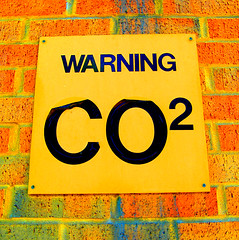( – promoted by buhdydharma )
Shut up already!!!
President Obama has said favorable words.
Al Gore says supports it. Paul Krugman says support it. Two Nobel Prize Winners.
WTF are you to question the President and two Nobel Prize winners?
That is a question received, in more than one space, when it comes to the Waxman-Markey American Clean Energy and Security (ACES).
Well, with all due respect to our President and the infallibility of Nobel Prize Winners (Kissinger (’73), James Watson (’03), etc …), we should be clear that the bill, as drafted, falls far short of what is necessary and, well, quite likely falls short of what is possible.
How can this be? How can a bill driven by two of  the most passionate and knowledgeable House members (Committee Chairmen) fall short of the possible?
the most passionate and knowledgeable House members (Committee Chairmen) fall short of the possible?
Let me start by blaming myself (and others of my ‘ilk’) … Perhaps it is because of a fundamental failure of those advocating serious action in regards to climate change. In short, as per Vice President Gore’s and many environmental organizations’ praise for the draft bill, there is a clear impression (if not reality) that those advocating for action in face of our challenges (and to seize opportunities) are prepared to take scraps from the table rather than fight for and demand adequate legislative action.
In short, the ‘mainstream’ reaction to the House Energy and Commerce Committee’s passage of ACES last week has been: ‘YEAH, Congrats and Thanks to Waxman and Markey, oh, by the way, can we try to strengthen this a bit?’
Well, we need to ask ourselves a serious question: How does one “win”?
Do you win by saying ‘this ain’t what I want but YEAH, everyone, support it’? And, then, painfully watch it watered down even further by attacks from anti-science suffering global warming deniers and influence from fossil-foolish lobbyists inserting themselves into the legislative process?
Or, do we get a stronger bill by reminding (STRONGLY) that this bill has tremendous shortfalls and does not even live up to basic principles?
Do we do better, for ourselves and our (collective)
 future prospects, by fighting hard to push the Overton Window on what is “possible” so that Champions (and, when it comes to clean energy and environmental issues, can anyone not call Ed Markey (for example) a legislative champion?) feel the wind at their backs, rather than their faces, when fighting to achieve necessary change? Do we do better by accommodating ourselves to what is “politically possible” and to “political realities” even as we recognize what is “politically possible” doesn’t come close to meeting what we know is necessary and that “political reality” doesn’t conform with the real world?
future prospects, by fighting hard to push the Overton Window on what is “possible” so that Champions (and, when it comes to clean energy and environmental issues, can anyone not call Ed Markey (for example) a legislative champion?) feel the wind at their backs, rather than their faces, when fighting to achieve necessary change? Do we do better by accommodating ourselves to what is “politically possible” and to “political realities” even as we recognize what is “politically possible” doesn’t come close to meeting what we know is necessary and that “political reality” doesn’t conform with the real world?
What are some items to consider?
- Joe Romm, who has been cheer-leading Waxman-Markey recently (despite much on-the-record work that provides a basis for highlighting its inadequacies), says that it might (MIGHT) give us a 10-20% chance of stabilization at 450 ppm and avoiding catastrophic climate change. Hmmm … what wonderful odds.
- The bill’s Renewable Electricity Standard (RES) doesn’t even meet the Energy Information Administration’s (EIA) latest business as usual (BAU) analysis of renewable power in the US system come 2020. (And, that BAU is an underestimate, because it assumes a disappearance of fiscal support in the interim and a crash of renewable deployment such that to meet EIA’s 2030 projections for renewable energy production, US firms would have to furlough about 90% of their workforce starting in about 2015.)
- The bill’s 2020 target is such that it could well be met with zero actual reduction in US emissions from the EIA’s latest BAU analysis. (This is from a comment from the EIA’s acting director in a public session yesterday.)
- The bill gives over $1 trillion in direct and indirect subsidies to fossil fuel industries and about 1/9th as much to renewable energy and energy efficiency.
And, so on …
ACES fails on principle ...
Amid all this, we should recognize that this bill, despite all the hard work by good people, fails on basic principles that we should apply to our understanding and support decisions for climate legislation.
1. Scientifically Sound: The IPCC benchmark, which is quite likely far too conservative (e.g., is not nearly aggressive enough), calls for the developed world to cut emissions by 2020 by 25-40 percent below 1990 levels. (2005 levels, being used as a benchmark for Waxman-Markey, are about 14 percent higher than 1990.) Generously speaking, W-M might achieve a 7 percent reduction below 1990 levels by 2020 and is more likely to be a near wash with those 1990 levels, leaving the United States (and the globe) significantly more polluting than the planetary system seems likely to be able to handle.
2. Polluters Pay: A very basic  element of any sensible climate policy is actually establishing a price for “carbon” (actually, any GHG) that will create economic incentives to reduce polluting. Waxman-Markey is stuffed with permit giveaways (especially in the near term) that simply violate what is a basic core principle. (Note: Revenues from making polluters pay certainly could be plowed back to help polluters cut their pollution (whether energy efficiency, new processes, renewables, etc). There could even be a discounted price (e.g., have “allowances” given at the “lowest” fee level) for some specific groups, but with placing some degree of costs. At the end of the day, it is fundamentally wrong to be handing over pollution permits … it is not just immoral, but it is counterproductive to the very desires to help drive down pollution levels, ASAP. And, by the way, it is uncertain as to whether will even be a meaningful price on carbon in the coming decade or so. (In the past week, crossing the desk have been assertions that the price will be essentially zero to, high end in 2020, $15 per ton of CO2 … which is a near meaningless amount a decade+ into the future.) (Note that President Obama’s full budget submission to Congress, from just a week ago, called for 100% auction of permits and no giveaways.)
element of any sensible climate policy is actually establishing a price for “carbon” (actually, any GHG) that will create economic incentives to reduce polluting. Waxman-Markey is stuffed with permit giveaways (especially in the near term) that simply violate what is a basic core principle. (Note: Revenues from making polluters pay certainly could be plowed back to help polluters cut their pollution (whether energy efficiency, new processes, renewables, etc). There could even be a discounted price (e.g., have “allowances” given at the “lowest” fee level) for some specific groups, but with placing some degree of costs. At the end of the day, it is fundamentally wrong to be handing over pollution permits … it is not just immoral, but it is counterproductive to the very desires to help drive down pollution levels, ASAP. And, by the way, it is uncertain as to whether will even be a meaningful price on carbon in the coming decade or so. (In the past week, crossing the desk have been assertions that the price will be essentially zero to, high end in 2020, $15 per ton of CO2 … which is a near meaningless amount a decade+ into the future.) (Note that President Obama’s full budget submission to Congress, from just a week ago, called for 100% auction of permits and no giveaways.)
3. Improves Social Equity: Waxman-Markey holds many elements seeking to reduce any fiscal impacts on lower-income Americans through giving away permits and reserving permits to help poorer Americans. But, this bill also gives two percent of permits to oil refineries and similiar give-aways to other major polluting corporations. The overall balance is unclear.
Grading it generously, the ACES might merit a C- on Principle 1 (lookback provisions raise it from D to the C level), perhaps a C on Principle 2 (yes, eventually, polluters are scheduled to pay, but there are a lot of giveaways), and gets an incomplete (or not yet graded) on Principle 3.
What next?
I remain challenged.
It is hard to scream “kill the bill” because we need to think what next?
And, the question is where can we go from here, are there paths to strengthen the bill?
At the stage where this is at, here are some proposed ‘strengthening items’ that have, it seems, at least some potential if championed in Congress.
- Polluters’ Pay: This is a basic principle that is thrown to the winds with 85% of the initial allocations simply given away. This is a sensible, basic rallying cry item: that those polluting our atmosphere should pay at least, even if token to begin, a price for the damage that they are creating. (Note that these free allocations are rewarding those who have, over time, chosen higher pollution, over lower pollution, investment paths.) The House (the Congress) should institute a ‘nominal’ minimum fee to be paid for all given allocations, rather than simply giving them away. Why not a “base price” for 100% of permit auctions that would be the price paid allocated permits? As a notional suggestion, why not ‘the year minus ten in dollars’? Thus, in 2012, the “free” allocations would be charged, instead, a price of $2 per ton. For 100% coal-fired electricity, this would translate to a $0.001 cost per kilowatt hour. In 2013, that would increase to $0.0015 per kWh from 100% coal (remember, average US energy mix is less than 50% coal). Use these revenues to support renewable energy and energy efficiency — targeting the majority of these resources toward the most polluting areas of the country.
- Gracefully Degrade Banked Permits:
 In the bill, ‘unused’ permits are permanently bankable — you can keep them in your pocket for decades, likely (hopefully) with ever increasing value. Don’t pollute to level expected in 2015, don’t worry, you can save that ‘authority to pollute’ for decades and dump out more CO2 come 2035. Almost certainly, the ACES targets are inadequate and learning/real-world events will likely lead to striving to strengthen targets in the future. The permanent banking undermines the ability to strengthen the bill in the future. Why not institute a graceful decay of ‘banked permits’? Perhaps a 10% degrading per annum, starting six months after the year in which the permit was issued? This enables sensible business and institutional planning while offering an opportunity to help drive down the total emissions over the life of this legislation.
In the bill, ‘unused’ permits are permanently bankable — you can keep them in your pocket for decades, likely (hopefully) with ever increasing value. Don’t pollute to level expected in 2015, don’t worry, you can save that ‘authority to pollute’ for decades and dump out more CO2 come 2035. Almost certainly, the ACES targets are inadequate and learning/real-world events will likely lead to striving to strengthen targets in the future. The permanent banking undermines the ability to strengthen the bill in the future. Why not institute a graceful decay of ‘banked permits’? Perhaps a 10% degrading per annum, starting six months after the year in which the permit was issued? This enables sensible business and institutional planning while offering an opportunity to help drive down the total emissions over the life of this legislation. - Tax Permit Allocations as Income: For all permit allocations that are not used for passing along to consumers or for energy efficiency/renewable energy investments, treat the difference between the “base “polluters’ pay” price” and the actual value of auctioned permits as revenue. A large share of the permits are being granted to private corporations, a grant of potentially huge amounts of value. Treating this as revenue, open to taxation, helps make this a more socially equitable piece of legislation.
These are three thoughts that, in their own way, help strengthen the bill along basic principle lines. (Note: these do not “solve” ACES’ problems or make it the legislation required, but they would improve the bill.)
These are, as well, elements that have at least a chance for being passed amendments into the legislation, strengthening the bill’s prospects.
Principles … Principles matter.
The three principles proposed above:
- Scientifically Sound
- Polluters Pay
- Socially Equitable
These three seem to provide a keystone of what should be at the core of the legislation and core words that could enable describing this to the overall American public to build support for what might well be the most important single piece and most far-reaching legislative activity in American history.
We should return to these principles as we consider the ACES and paths forward … We should fight to bring the final legislation in line with these principles.
And, we should Speak 16 Times Louder.

3 comments
With 85 percent of the greenhouse gas emissions ‘permits’ given away to the polluters, can the remaining 15 percent be purchased by anyone?
Is this a one-time giveaway or is it corporate welfare on an annual basis? From the description you’ve given, it seems like it is an annual corporate giveaway costing taxpayers billions.
How is giving away permits to pollute any different than the non-permitted system that we have today where the polluters can just pollute?
I still dislike the cap-and-trade system and prefer a carbon tax, but I’ve been told repeatedly this can’t work and is a non-starter.
While there is a good argument about not letting the perfect be the enemy of what can be done, I wonder if this legislation is passed then will it be used as another example the government make a positive difference when it comes to climate change.
so I can breathe…well, actually, I’m recommending that my Republican “friends” do this. I want to time how long they last with all that “healthy” CO2 and that terrific Nitrogen!